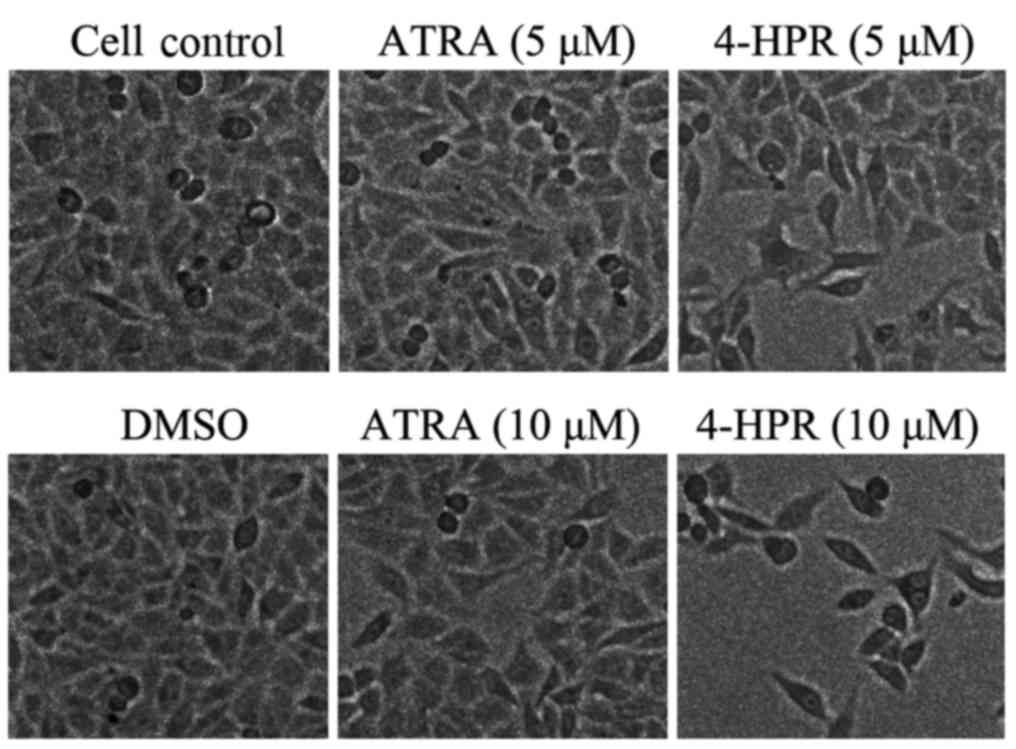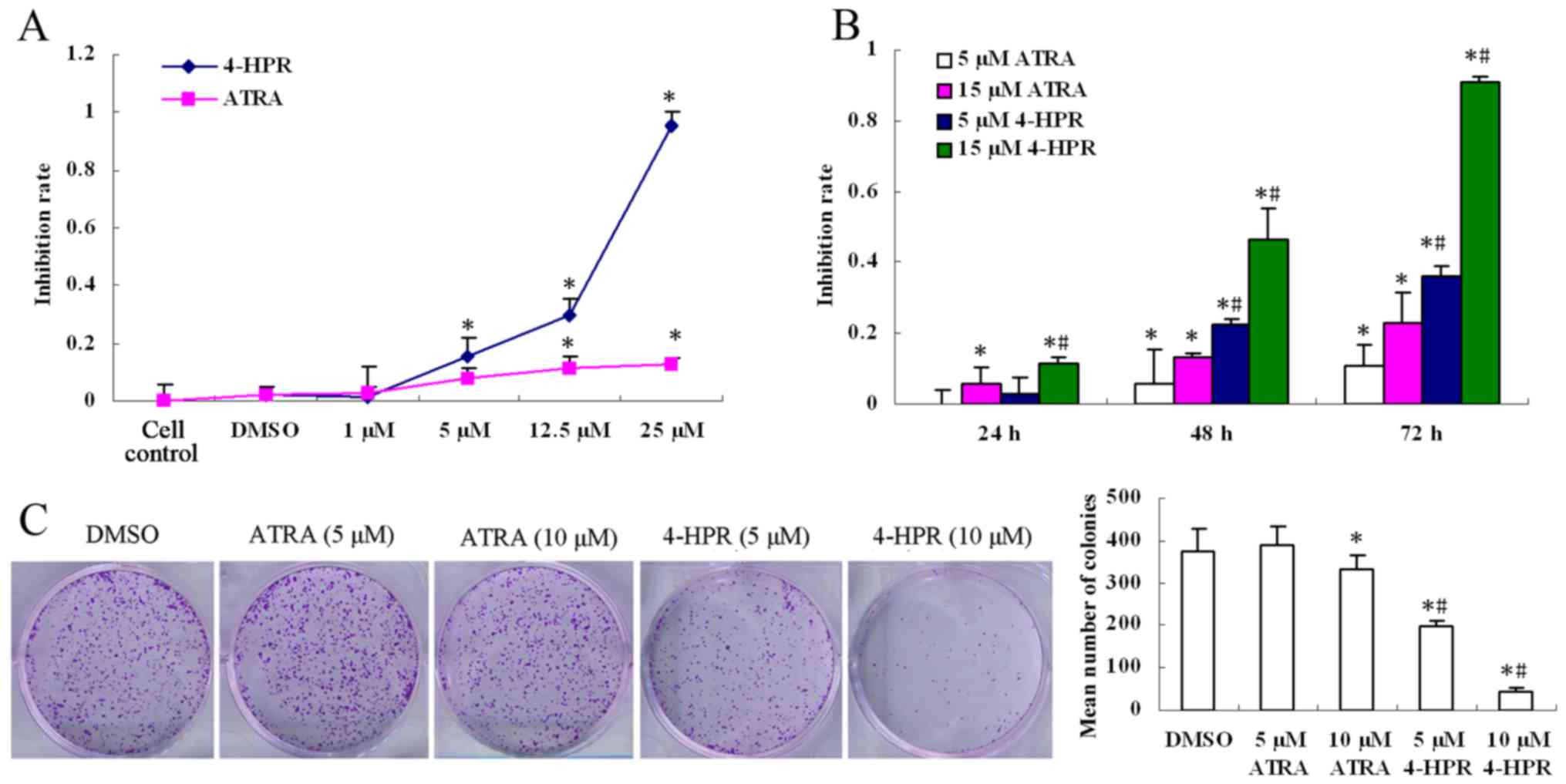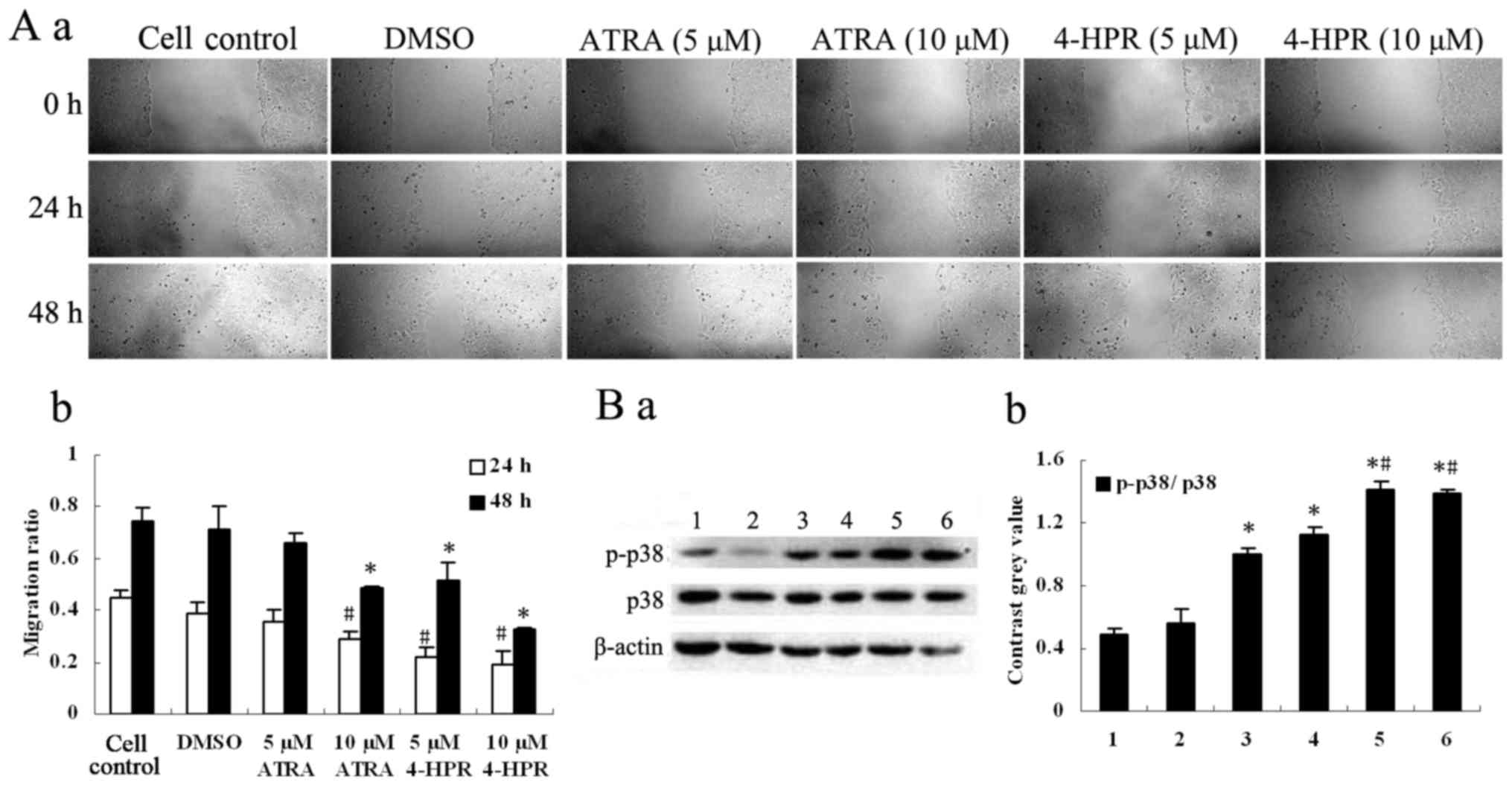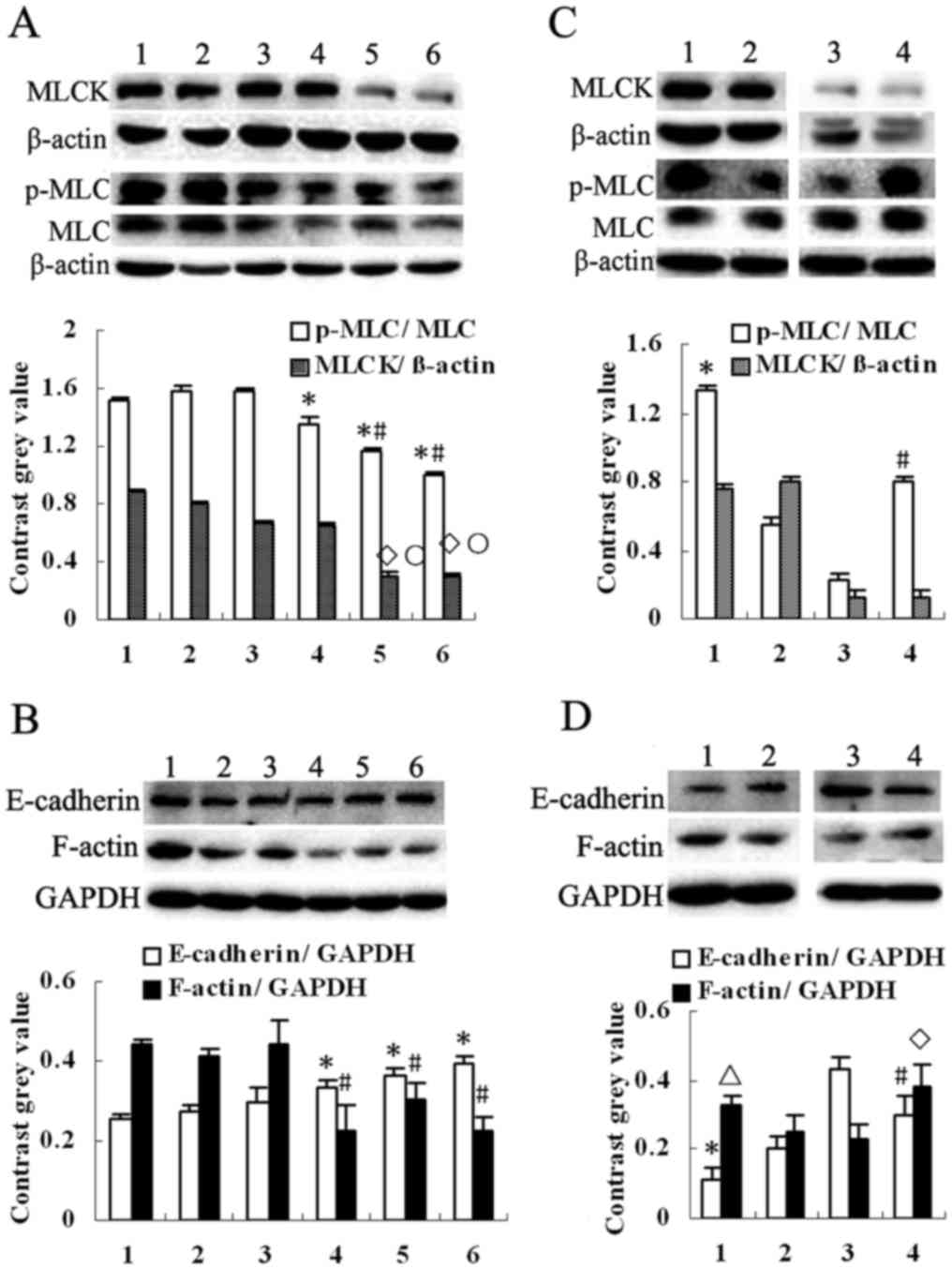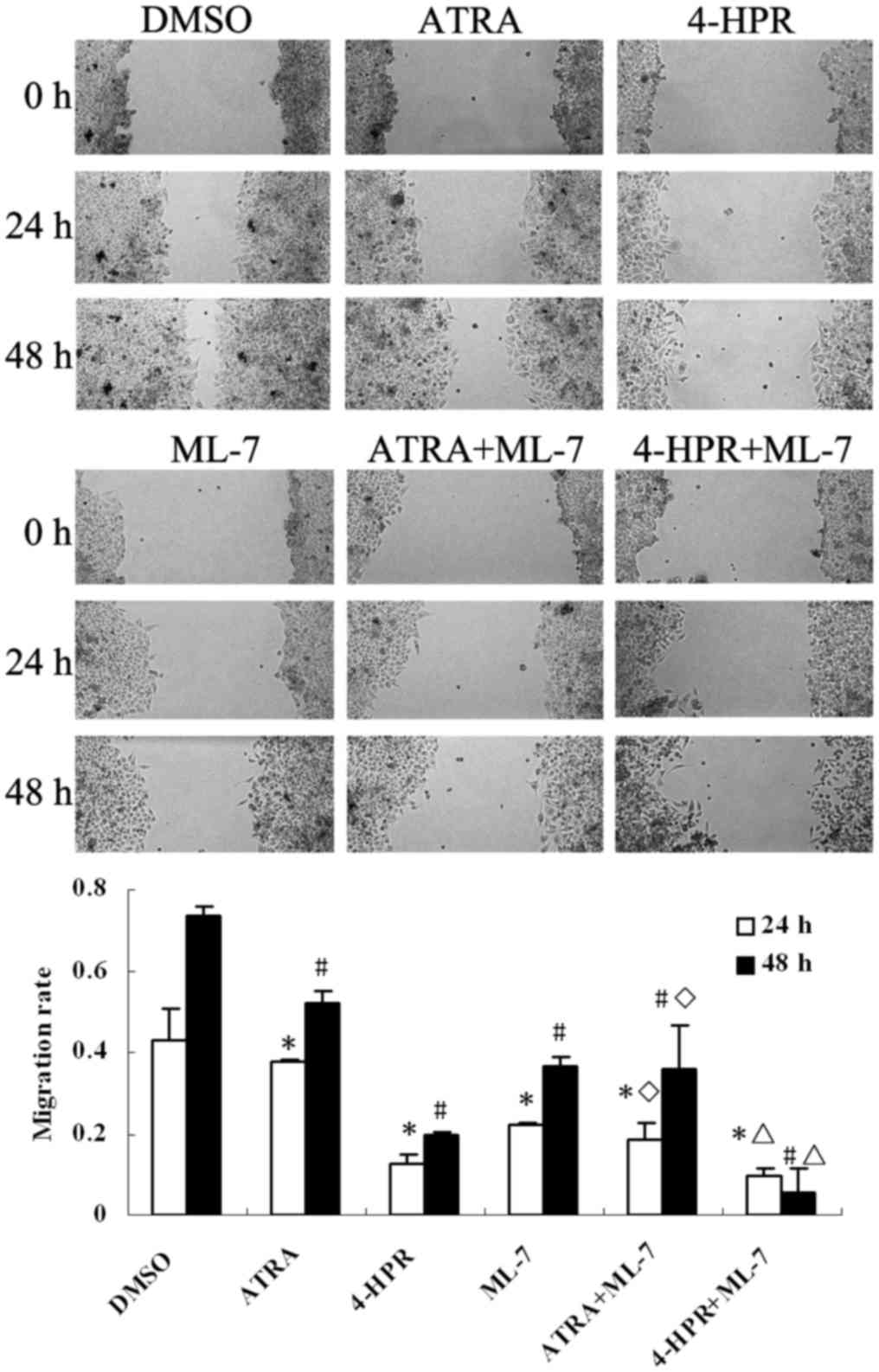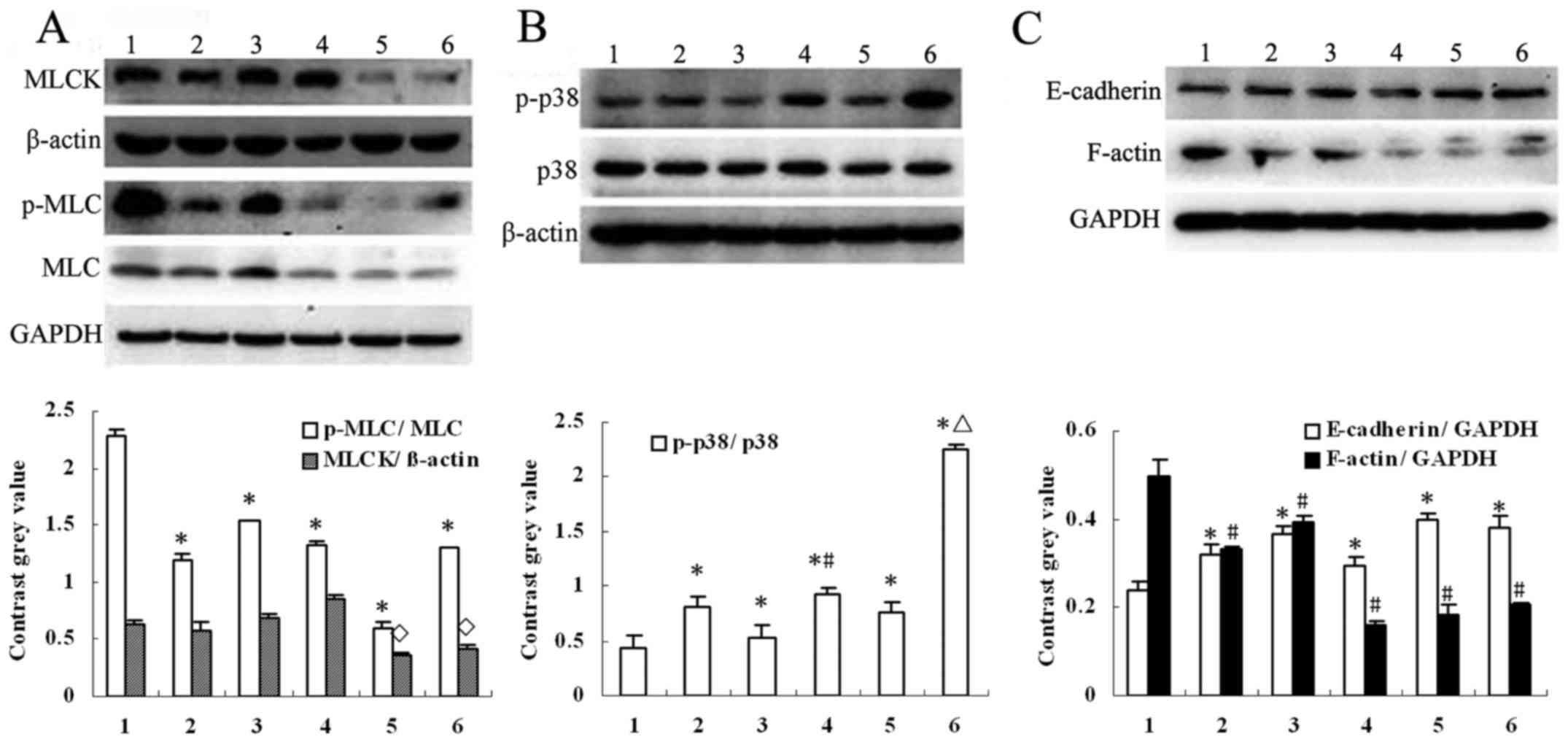|
1
|
Allan BJ, Parikh PP, Diaz S, Perez EA,
Neville HL and Sola JE: Predictors of survival and incidence of
hepatoblastoma in the paediatric population. HPB (Oxford).
15:741–746. 2013. View Article : Google Scholar : PubMed/NCBI
|
|
2
|
McAteer JP, Goldin AB, Healey PJ and Gow
KW: Surgical treatment of primary liver tumors in children:
Outcomes analysis of resection and transplantation in the SEER
database. Pediatr Transplant. 17:744–750. 2013. View Article : Google Scholar : PubMed/NCBI
|
|
3
|
Kremer N, Walther AE and Tiao GM:
Management of hepatoblastoma: An update. Curr Opin Pediatr.
26:362–369. 2014. View Article : Google Scholar : PubMed/NCBI
|
|
4
|
Wu X, Wang X, Qien X, Liu H, Ying J, Yang
Z and Yao H: Four years' experience with the treatment of
all-trans retinoic acid in acute promyelocytic leukemia. Am
J Hematol. 43:183–189. 1993. View Article : Google Scholar : PubMed/NCBI
|
|
5
|
Wu X, Lu H, Zhou L, Huang Y and Chen H:
Changes of phosphatidylcholine-specific phospholipase C in
hepatocarcinogenesis and in the proliferation and differentiation
of rat liver cancer cells. Cell Biol Int. 21:375–381. 1997.
View Article : Google Scholar : PubMed/NCBI
|
|
6
|
Cooper JP, Reynolds CP, Cho H and Kang MH:
Clinical development of fenretinide as an antineoplastic drug:
Pharmacology perspectives. Exp Biol Med (Maywood). 242:1178–1184.
2017. View Article : Google Scholar : PubMed/NCBI
|
|
7
|
Vaccari M, Silingardi P, Argnani A, Horn
W, Giungi M, Mascolo MG, Grilli S and Colacci A: In vitro effects
of fenretinide on cell-matrix interactions. Anticancer Res.
20:3059–3066. 2000.PubMed/NCBI
|
|
8
|
Aoyama Y: Experimental studies on the
effects of the combined use of N-(4-hydroxyphenyl)retinamide
(4-HPR) and tamoxifen (TAM) for estrogen receptor (ER)-negative
breast cancer. Kurume Med J. 49:27–33. 2002. View Article : Google Scholar : PubMed/NCBI
|
|
9
|
Veronesi U, Mariani L, Decensi A, Formelli
F, Camerini T, Miceli R, Di Mauro MG, Costa A, Marubini E, Sporn MB
and De Palo G: Fifteen-year results of a randomized phase III trial
of fenretinide to prevent second breast cancer. Ann Oncol.
17:1065–1071. 2006. View Article : Google Scholar : PubMed/NCBI
|
|
10
|
Kang H, Lee M, Choi KC, Shin DM, Ko J and
Jang SW: N-(4-hydroxyphenyl)retinamide inhibits breast cancer cell
invasion through suppressing NF-κB activation and inhibiting matrix
metalloproteinase-9 expression. J Cell Biochem. 113:2845–2855.
2012. View Article : Google Scholar : PubMed/NCBI
|
|
11
|
Benelli R, Monteghirfo S, Venè R, Tosetti
F and Ferrari N: The chemopreventive retinoid 4HPR impairs prostate
cancer cell migration and invasion by interfering with
FAK/AKT/GSK3beta pathway and beta-catenin stability. Mol Cancer.
9:1422010. View Article : Google Scholar : PubMed/NCBI
|
|
12
|
Moore MM, Stockler M, Lim R, Mok TSK,
Millward M and Boyer MJ: A phase II study of fenretinide in
patients with hormone refractory prostate cancer: A trial of the
Cancer Therapeutics Research Group. Cancer Chemother Pharmacol.
66:845–850. 2010. View Article : Google Scholar : PubMed/NCBI
|
|
13
|
Kyriakis JM and Avruch J: Mammalian
mitogen-activated protein kinase signal transduction pathways
activated by stress and inflammation. Physiol Rev. 81:807–869.
2001. View Article : Google Scholar : PubMed/NCBI
|
|
14
|
Matsuzawa A, Nishitoh H, Tobiume K, Takeda
K and Ichijo H: Physiological roles of ASK1-mediated signal
transduction in oxidative stress- and endoplasmic reticulum
stress-induced apoptosis: Advanced findings from ASK1 knockout
mice. Antioxid Redox Signal. 4:415–425. 2002. View Article : Google Scholar : PubMed/NCBI
|
|
15
|
Martindale JL and Holbrook NJ: Cellular
response to oxidative stress: Signaling for suicide and survival. J
Cell Physiol. 192:1–15. 2002. View Article : Google Scholar : PubMed/NCBI
|
|
16
|
Xia Z, Dickens M, Raingeaud J, Davis RJ
and Greenberg ME: Opposing effects of ERK and JNK-p38 MAP kinases
on apoptosis. Science. 270:1326–1331. 1995. View Article : Google Scholar : PubMed/NCBI
|
|
17
|
Ganeshan VR and Schor NF: p75 neurotrophin
receptor and fenretinide-induced signaling in neuroblastoma. Cancer
Chemother Pharmacol. 73:271–279. 2014. View Article : Google Scholar : PubMed/NCBI
|
|
18
|
Cao J, Ying M, Xie N, Lin G, Dong R, Zhang
J, Yan H, Yang X, He Q and Yang B: The oxidation states of DJ-1
dictate the cell fate in response to oxidative stress triggered by
4-hpr: Autophagy or apoptosis? Antioxid Redox Signal. 21:1443–1459.
2014. View Article : Google Scholar : PubMed/NCBI
|
|
19
|
Makena MR, Koneru B, Nguyen TH, Kang MH
and Reynolds CP: Reactive oxygen species-mediated synergism of
fenretinide and romidepsin in preclinical models of T-cell lymphoid
malignancies. Mol Cancer Ther. 16:649–661. 2017. View Article : Google Scholar : PubMed/NCBI
|
|
20
|
Yang H, Nie Y, Li Y and Wan Y-JY: ERK1/2
deactivation enhances cytoplasmic Nur77 expression level and
improves the apoptotic effect of fenretinide in human liver cancer
cells. Biochem Pharmacol. 81:910–916. 2011. View Article : Google Scholar : PubMed/NCBI
|
|
21
|
Zhou X, Liu Y, You J, Zhang H, Zhang X and
Ye L: Myosin light-chain kinase contributes to the proliferation
and migration of breast cancer cells through cross-talk with
activated ERK1/2. Cancer Lett. 270:312–327. 2008. View Article : Google Scholar : PubMed/NCBI
|
|
22
|
Chew TL, Wolf WA, Gallagher PJ, Matsumura
F and Chisholm RL: A fluorescent resonant energy transfer-based
biosensor reveals transient and regional myosin light chain kinase
activation in lamella and cleavage furrows. J Cell Biol.
156:543–553. 2002. View Article : Google Scholar : PubMed/NCBI
|
|
23
|
Kolega J: Asymmetric distribution of
myosin IIB in migrating endothelial cells is regulated by a
rho-dependent kinase and contributes to tail retraction. Mol Biol
Cell. 14:4745–4757. 2003. View Article : Google Scholar : PubMed/NCBI
|
|
24
|
López-Terrada D, Cheung SW, Finegold MJ
and Knowles BB: Hep G2 is a hepatoblastoma-derived cell line. Hum
Pathol. 40:1512–1515. 2009. View Article : Google Scholar
|
|
25
|
Liu H, Chen F, Zhang L, Zhou Q, Gui S and
Wang Y: A novel all-trans retinoic acid derivative
4-amino-2-trifluoromethyl-phenyl retinate inhibits the
proliferation of human hepatocellular carcinoma HepG2 cells by
inducing G0/G1 cell cycle arrest and apoptosis via upregulation of
p53 and ASPP1 and downregulation of iASPP. Oncol Rep. 36:333–341.
2016. View Article : Google Scholar : PubMed/NCBI
|
|
26
|
Ryerson AB, Eheman CR, Altekruse SF, Ward
JW, Jemal A, Sherman RL, Henley SJ, Holtzman D, Lake A, Noone AM,
et al: Annual Report to the Nation on the Status of Cancer,
1975–2012, featuring the increasing incidence of liver cancer.
Cancer. 122:1312–1337. 2016. View Article : Google Scholar : PubMed/NCBI
|
|
27
|
Mönig SP, Baldus SE, Hennecken JK,
Spiecker DB, Grass G, Schneider PM, Thiele J, Dienes HP and
Hölscher AH: Expression of MMP-2 is associated with progression and
lymph node metastasis of gastric carcinoma. Histopathology.
39:597–602. 2001. View Article : Google Scholar : PubMed/NCBI
|
|
28
|
Kitareewan S, Spinella MJ, Allopenna J,
Reczek PR and Dmitrovsky E: 4HPR triggers apoptosis but not
differentiation in retinoid sensitive and resistant human embryonal
carcinoma cells through an RARgamma independent pathway. Oncogene.
18:5747–5755. 1999. View Article : Google Scholar : PubMed/NCBI
|
|
29
|
Pienta KJ, Esper PS, Zwas F, Krzeminski R
and Flaherty LE: Phase II chemoprevention trial of oral fenretinide
in patients at risk for adenocarcinoma of the prostate. Am J Clin
Oncol. 20:36–39. 1997. View Article : Google Scholar : PubMed/NCBI
|
|
30
|
Garaventa A, Luksch R, Lo Piccolo MS,
Cavadini E, Montaldo PG, Pizzitola MR, Boni L, Ponzoni M, Decensi
A, De Bernardi B, et al: Phase I trial and pharmacokinetics of
fenretinide in children with neuroblastoma. Clin Cancer Res.
9:2032–2039. 2003.PubMed/NCBI
|
|
31
|
Reddy Damodar C, Guttapalli A, Adamson PC,
Vemuri MC, O'Rourke D, Sutton LN and Phillips PC: Anticancer
effects of fenretinide in human medulloblastoma. Cancer Lett.
231:262–269. 2006. View Article : Google Scholar : PubMed/NCBI
|
|
32
|
Messner MC and Cabot MC: Cytotoxic
responses to N-(4-hydroxyphenyl)retinamide in human pancreatic
cancer cells. Cancer Chemother Pharmacol. 68:477–487. 2011.
View Article : Google Scholar : PubMed/NCBI
|
|
33
|
Du Y, Xia Y, Pan X, Chen Z, Wang A, Wang
K, Li J and Zhang J: Fenretinide targets chronic myeloid leukemia
stem/progenitor cells by regulation of redox signaling. Antioxid
Redox Signal. 20:1866–1880. 2014. View Article : Google Scholar : PubMed/NCBI
|
|
34
|
Durante S, Orienti I, Teti G, Salvatore V,
Focaroli S, Tesei A, Pignatta S and Falconi M: Anti-tumor activity
of fenretinide complexed with human serum albumin in lung cancer
xenograft mouse model. Oncotarget. 5:4811–4820. 2014. View Article : Google Scholar : PubMed/NCBI
|
|
35
|
Sogno I, Venè R, Ferrari N, De Censi A,
Imperatori A, Noonan DM, Tosetti F and Albini A: Angioprevention
with fenretinide: Targeting angiogenesis in prevention and
therapeutic strategies. Crit Rev Oncol Hematol. 75:2–14. 2010.
View Article : Google Scholar : PubMed/NCBI
|
|
36
|
Sharp RM, Bello-DeOcampo D, Quader ST and
Webber MM: N-(4-hydroxyphenyl)retinamide (4-HPR) decreases
neoplastic properties of human prostate cells: An agent for
prevention. Mutat Res. 496:163–170. 2001. View Article : Google Scholar : PubMed/NCBI
|
|
37
|
Holven KB, Natarajan V, Gundersen TE,
Moskaug JO, Norum KR and Blomhoff R: Secretion of
N-(4-hydroxyphenyl) retinamide-retinol-binding protein from liver
parenchymal cells: Evidence for reduced affinity of the complex for
transthyretin. Int J Cancer. 71:654–659. 1997. View Article : Google Scholar : PubMed/NCBI
|
|
38
|
Sui X, Kong N, Ye L, Han W, Zhou J, Zhang
Q, He C and Pan H: p38 and JNK MAPK pathways control the balance of
apoptosis and autophagy in response to chemotherapeutic agents.
Cancer Lett. 344:174–179. 2014. View Article : Google Scholar : PubMed/NCBI
|
|
39
|
Wagner EF and Nebreda AR: Signal
integration by JNK and p38 MAPK pathways in cancer development. Nat
Rev Cancer. 9:537–549. 2009. View Article : Google Scholar : PubMed/NCBI
|
|
40
|
Ávila-Rodríguez D, Agama Solano C,
González-Pozos S, Méndez-Méndez Vicente J, Plata Ortiz A,
Arreola-Mendoza L and Mendoza-Garrido ME: The shift in GH3 cell
shape and cell motility is dependent on MLCK and ROCK. Exp Cell
Res. 354:1–17. 2017. View Article : Google Scholar : PubMed/NCBI
|
|
41
|
Chen Z, Liu S, Xia Y and Wu K: MiR-31
regulates Rho-associated kinase-myosin light chain (ROCK-MLC)
pathway and inhibits gastric cancer invasion: Roles of RhoA. Med
Sci Monit. 22:4679–4691. 2016. View Article : Google Scholar : PubMed/NCBI
|
|
42
|
Li HS, Lin Q, Wu J, Jiang ZH, Zhao JB, Pan
J, He WQ and Zha JM: Myosin regulatory light chain phosphorylation
is associated with leiomyosarcoma development. Biomed Pharmacother.
92:810–818. 2017. View Article : Google Scholar : PubMed/NCBI
|
|
43
|
Thiery JP: Epithelial-mesenchymal
transitions in tumour progression. Nat Rev Cancer. 2:442–454. 2002.
View Article : Google Scholar : PubMed/NCBI
|
|
44
|
Nürnberg A, Kitzing T and Grosse R:
Nucleating actin for invasion. Nat Rev Cancer. 11:177–187. 2011.
View Article : Google Scholar : PubMed/NCBI
|
|
45
|
Shao JB, Gao ZM, Huang WY and Lu ZB: The
mechanism of epithelial-mesenchymal transition induced by TGF-β1 in
neuroblastoma cells. Int J Oncol. 50:1623–1633. 2017. View Article : Google Scholar : PubMed/NCBI
|
|
46
|
Wu B, Yang S, Sun H, Sun T, Ji F, Wang Y,
Xu L and Zhou D: Keap1 inhibits metastatic properties of NSCLC
cells by stabilizing architectures of F-actin and focal adhesions.
Mol Cancer Res. 16:508–516. 2018. View Article : Google Scholar : PubMed/NCBI
|
|
47
|
Huang C, Jacobson K and Schaller MD: MAP
kinases and cell migration. J Cell Sci. 117:4619–4628. 2004.
View Article : Google Scholar : PubMed/NCBI
|















